$200.00 – $1,300.00
All Hail The Lizard King: Exploring This Unique Magic Mushroom Strain
The Lizard King may have revealed himself to be more of a gecko than a dragon.
Buy Lizard King magic mushroom Strain Online | Lizard King magic mushroom Strain for sale Online.
Buy Lizard King magic mushroom Strain Online. The Lizard King strain is unusual for a Psilocybe cubensis strain because it was reportedly discovered growing on wood. Most Psilocybe cubensis prefer growing out of dung or decaying leaf matter.
This strain isn’t fussy about where it grows and can thrive on a variety of substrates. The only downside here is that it seems to be more susceptible to contamination than usual. Buy Lizard King magic mushroom Strain Online.
This strain is known for producing vigorous flushes with dozens of mushrooms per cluster — yet the individual mushrooms themselves tend to be weaker than most Psilocybe cubensis. This fact makes it an unpopular choice among mushroom growers looking for maximum efficiency with their grows. Buy Lizard King magic mushroom Strain Online.
A 2-gram dose of this shroom is roughly equivalent to about 2.5 grams of something like Golden Teacher.
Lizard King Specs
| Potency | Weak 🐁 |
| Cultivation | Intermediate |
| Species | Psilocybe cubensis |
| Substrate Recommendation | Rye Grain, Manure, BRF |
| Cost | $$ |
| Sold By | Shop |
History of the Lizard King Strain
The Lizard King strain gets its name from the infamous anonymous mycologist that goes by the name of “Lizard King” online. This mycologist discovered Lizard King and several other Mexicana species while roaming around in rural Northern Mexico.
The Lizard King strain was found growing on decomposing wood. This is very strange for the Psilocybe cubensis species and perhaps one of the only strains growing on this substrate. 99% of the other cubensis strains found have been discovered growing amongst grassland, in manure, or in wetland areas.
This unusual aspect of the Lizard King strain makes it highly intriguing.
Lizard King Potency & Psilocybin Content
Lizard King has below-average potency. Quantitative testing on this strain suggests an average potency of around 0.3–0.5% psilocybin and psilocin.
For reference, we consider the average Psilocybe cubensis sample to contain somewhere between 0.5% and 0.9% total tryptamines.
With that said, the Lizard King strain is still a powerful hallucinogenic mushroom. You’ll just need to consume a little bit more than you would with other strains.
In terms of effects, the Lizard King strain has some other unique differences. Unlike other strains, Lizard King doesn’t produce much of a body high. Waves of energy and euphoria are present, but other than this, the trip is clean and calm. This is a great strain for microdosing and light dosing while spending time in nature because it’s easy to stay relatively “normal” during the experience.
Lizard King Dosage Guide
- Mild Experience: 1 to 1.5 grams
- Medium Experience: 1.5 to 2.5 grams
- Full Experience: 2.5 to 4 grams
- Heroic Experience: 4 grams plus
Where to Buy Lizard King Spores | Buy Lizard King magic mushroom Strain Online.
If you are in United State, Canada, Australia and Europe then To buy Golden Halo Magic mushroom online, visit our shop.
We sell magic mushrooms as well as medicinal and gourmet mushroom spores.
This company ships worldwide and offer an enticing insurance policy for orders that are blocked at the border.
If your order is stopped for any reason, We will ship another identical order free of charge.
How to Grow Lizard King Mushrooms
Magic mushrooms are surprisingly easy to cultivate. With some simple equipment and techniques, you can easily grow shrooms at home.
The Lizard King strain is a particularly simple strain to grow that doesn’t take too much effort to cultivate effectively. However, a temperature-controlled and sterile environment is key to producing good results. With this in mind, it’s probably not the best strain for the beginner grower.
Lizard king is a great strain for those cultivators that have produced shrooms a few times and understand the cultivation process.
This strain can be grown similarly to other Psilocybe cubensis mushrooms. The best method is a cultivation technique called PF-Tek. This method involves inoculating sterile jars of the substrate with mushroom spores using a syringe. The jars are left to colonize, and the resulting mycelium cakes are transferred into a fruiting chamber.
The fruiting chamber is a translucent box with a layer of substrate lining the bottom. The chamber is left with the mycelium cakes in situ, and the temperature and humidity are controlled to ensure a stable internal environment for mushroom growth. The mycelium will begin to pin, and mushrooms will start to form.
The shrooms can then be harvested as they mature before they drop their spores. This will ensure that the mycelium can produce more mushrooms through several flushes until the colony eventually succumbs to mold growth.
This may all sound a little complicated, but it’s surprisingly simple. If you want to learn about mushroom cultivation and PF-Tek, check out our guide on cultivating magic mushrooms.
Lizard king isn’t fussy when it comes to substrate choice. This strain will do well on Rye Grain, BRF (brown rice flour) cakes, or pasteurized manure.
Regardless of your choice of substrate, the incubation environment must be kept between 20 and 28 degrees Celsius (68 and 82 degrees Fahrenheit), and the fruiting chamber must be kept between 10 to 20 degrees Celsius (50 to 68 degrees Fahrenheit).
Similar Strains
Lizard King is unusual — one, for its name and two, for the habitat it was discovered growing on (wood).
Although there are very few Psilocybe cubensis strains that have been found growing on wood (this may be the only one), we’re not short of unusual shrooms.
If you’re interested in cultivating a strain that’s a little more unusual than your average cube, you may be interested in these strains:
White Rabbit (WR)
White Rabbit is an albino strain of Psilocybe cubensis developed by a group of Dutch cultivators. This is a hybridization of Albino Penis Envy and Moby Dick. White Rabbit is renowned for its ghostly white looks and its incredible potency that could challenge the likes of Tidal Wave and Penis Envy.
Surprisingly, this unusual, highly potent albino strain is remarkably easy to cultivate. It’s contamination-resistant, and with the right equipment and technique, multiple flushes of healthy shrooms can be produced.
T3
There’s no other Psilocybe cubensis strain like T3. This strain is aptly named T3 because of its bizarre set of three distinct growth patterns that change from flush to flush.
The mushrooms closely resemble Koh Samui, and it could be a genetic offshoot of the strain. It has above-average potency and is relatively easy to grow. If you’re interested in producing several different-looking mushrooms from a single stock, T3 is the one.
Penis Envy (PE)
Penis Envy gets its name from the unusual phallic-shaped fruiting bodies it produces. It’s extremely popular for its incredible potency. It’s not a particularly easy strain to cultivate, but with some knowledge and experience, multiple flushes of high-potency shrooms can be produced.
Penis Envy shrooms don’t shrink much when dried and hold their iconic penis shape. Every now and then, this strain produces a thick flush of true albino fruits. A few rounds of isolation on agar will reliably and consistently produce albinos. This is an interesting strain for the experienced cultivator to experiment with.
Mazatapec (MZTC)
Mazatapec was one of the very first Psilocybin cubensis strains to be brought to the western world. This was discovered in the mountainous region of Mazatapec in Mexico (hence the name).
The fruiting bodies have large bulbous round caps and extremely long stems. Mazatapec has above-average potency and is an excellent choice for the beginner cultivator, thanks to its resistance to unoptimized growing environments.
Mexicube (MC)
Mexicube is a unique shroom in terms of looks. This strain isn’t particularly potent, but the fruiting bodies are really quite something to look at. It has spotted caps and thick golden-colored stems, making this one an interesting cultivar for the grower that’s looking for something a little out of the ordinary.
The Mexicube strain produces several dense clusters of small to medium-sized shrooms, and several flushes are possible before mold takes over, thanks to its excellent contamination resistance.
Palenque Mexico (PMEX)
Palenque Mexico is an extremely potent Mexican strain of Psilocybe cubensis. It’s pretty basic in its looks, and the fruiting bodies don’t get particularly big, but what this shroom lacks in looks, it makes up for in personality.
This strain is a fast colonizer and fruiter. However, it’s definitely not for the beginner. It’s highly susceptible to mold growth, and producing multiple flushes of healthy shrooms before the colony succumbs to mold is extremely difficult.
Strains vs. Species: What’s The Difference?
If you’ve read through a few of our articles, you would’ve seen that there are hundreds of different magic mushrooms out there. Many feature unique names like Lizard King, White Rabbit, Penis Envy, or Tidal Wave.
Although there are several different species of magic mushrooms, the majority of these imaginatively-named shrooms are, in fact, the same species — Psilocybe cubensis.
So how many varieties exist if the vast majority of magic mushrooms come from the same species?
To answer this, we have to touch on the differences between a “strain” and a “species.”
Strains are genetic variants within a single species. One species can have hundreds of different strains. Each strain may have small or large genetic differences that define them.
Take the psilocybe cubensis species of fungi, for example. This species has hundreds of different strains that all have different traits. Some are large, others small, some may be average in potency, others will send you into outer space if you’re not careful enough with the dose.
Species is the larger classification, referring to specimens with the same genetic makeup. Two members of any given species can mate to produce viable offspring. Two samples from different species cannot mate.
There are hundreds of different species of magic mushrooms, including Psilocybe cubensis, Psilocybe aztecorum, Panaeolus cyanescens, and many more.
| Quantity | Ounce, 1/4Pound, 1/2Pound, Pound |
|---|
Be the first to review “Buy Lizard King magic mushroom Strain Online.” Cancel reply
Related products
Mushroom
Mushroom
Mushroom
Mushroom
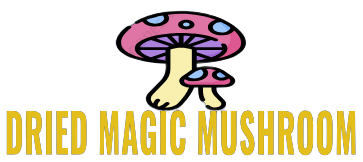
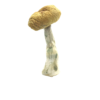
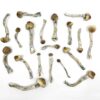
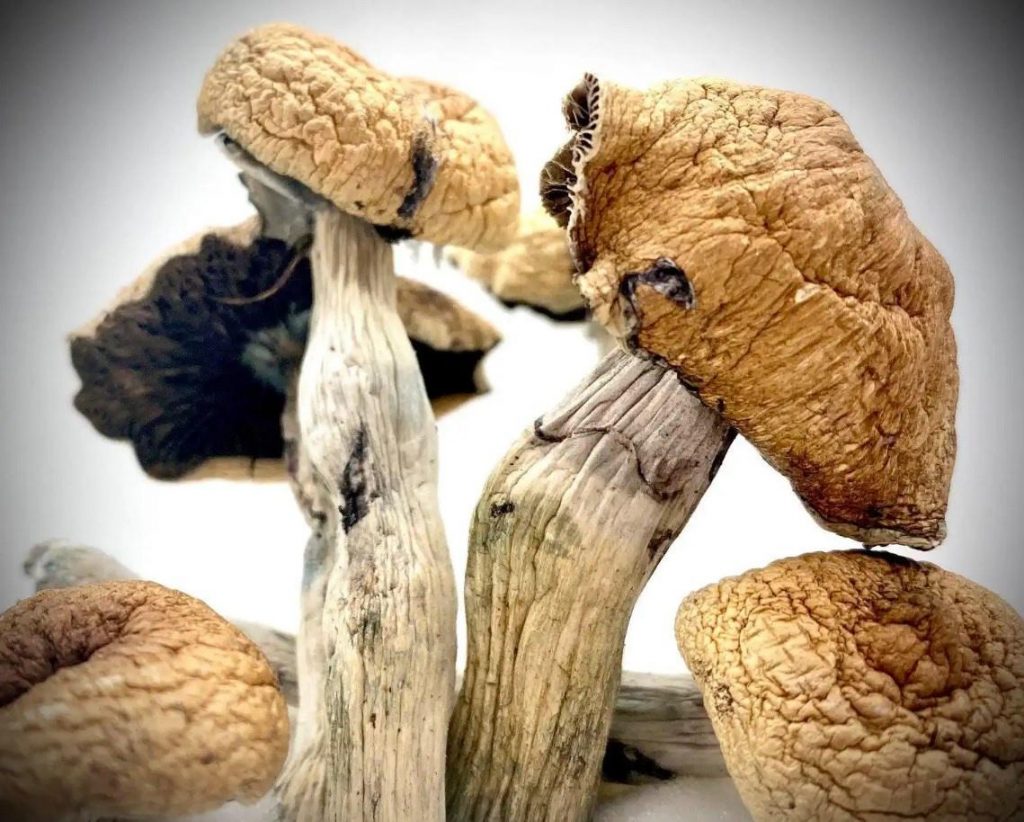


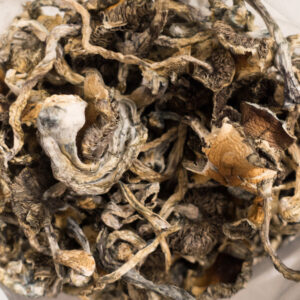
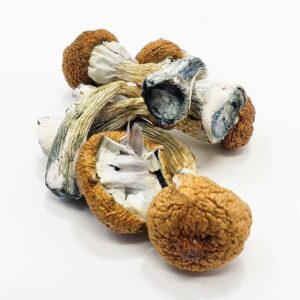
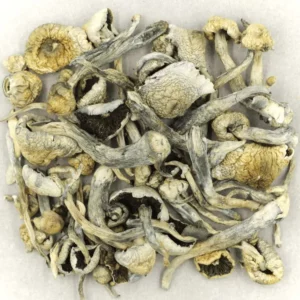
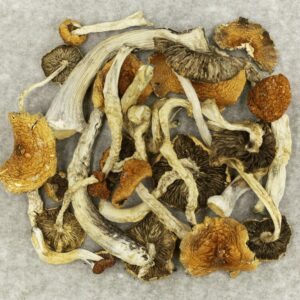
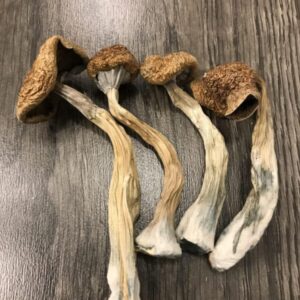
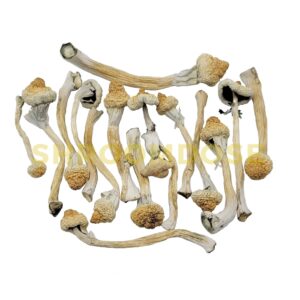
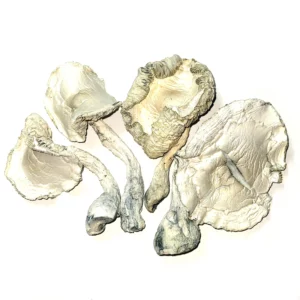
Reviews
There are no reviews yet.